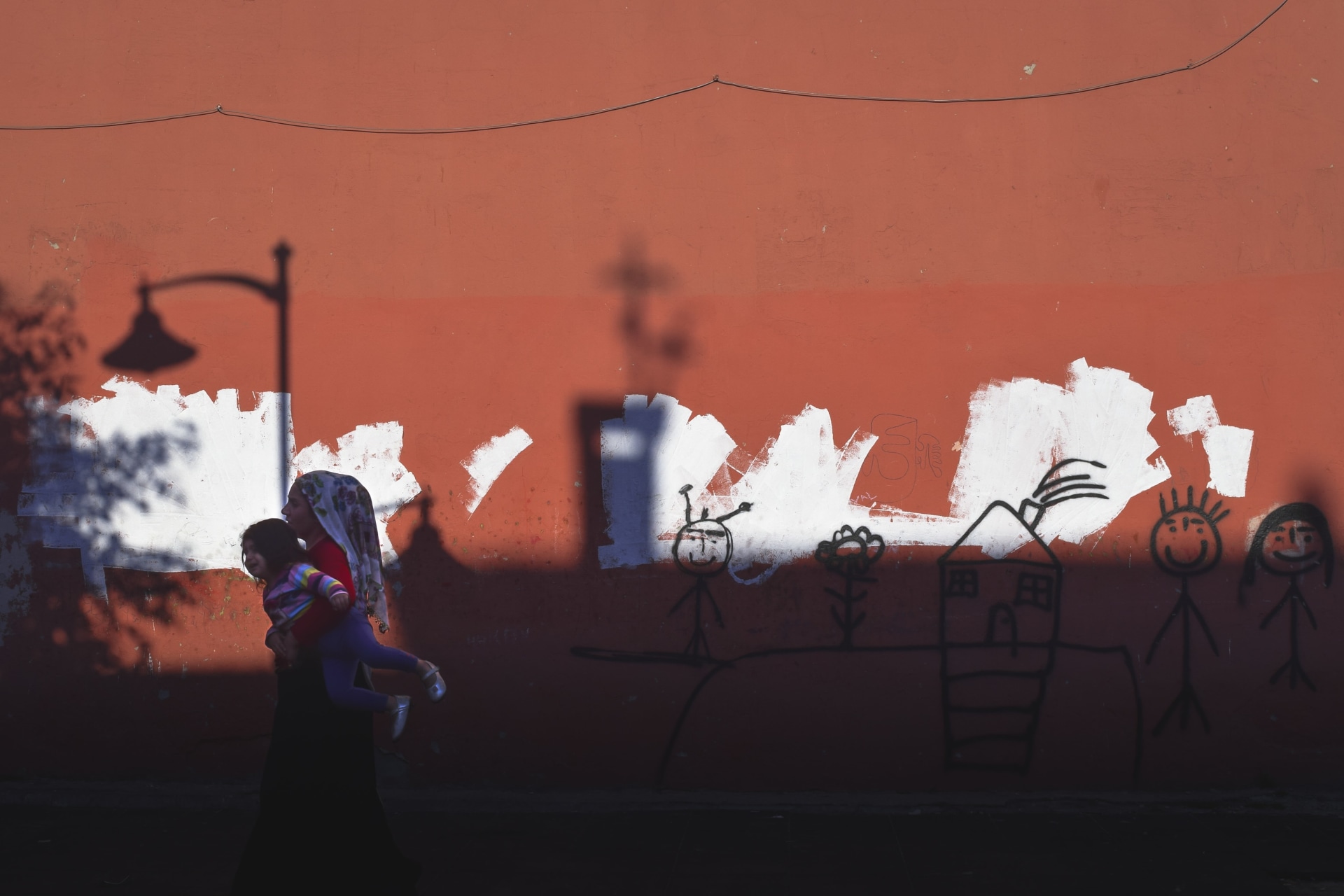Violence Against Women Deserves More Than a 16 Day International Campaign
Every year, the 16 Days of Activism against Gender-Based Violence campaign brings attention to the systemic violence experienced by women and girls all over the world – but these commitments must go beyond sixteen days of lip service. It is time for leaders to take concrete steps that fund and support women and girls, particularly those afflicted by conflict or crisis.

By experts and staff
- Published
By
- Guest Blogger for Women Around the World
This piece was authored by Nicole Behnam, Senior Technical Director for violence prevention and response for the International Rescue Committee.
Every November, global actors kicks off its annual 16 Days of Activism against Gender-Based Violence campaign calling attention to the violence women and girls around the world experience on a daily basis. While every year it is gut-wrenching to see the numbers and read how many women and girls have been killed, hurt or discriminated against, this year, the outlook is especially grim. Reports of violence against women and girls during the COVID-19 pandemic have increased significantly around the world, from the UK, France, and China, to the United States, as many women and girls were locked down in their homes with their abusers, isolated from support networks and services.
Women and girls living in conflict or amidst protracted crises are especially at risk. A recent analysis found that, over the past 25 years, Afghanistan has experienced the highest increase in reports of domestic violence (46 percent) among conflict-affected states, followed by Ethiopia (40 percent), and the Democratic Republic of the Congo (37 percent). The same analysis also found that the ten countries with the highest child marriage prevalence rates are either fragile or extremely fragile.
The ‘shadow pandemic’ of gender-based-violence (GBV) has also been rising significantly in refugee camps since the start of COVID-19. In a recent study by the International Rescue Committee, 73 percent of women living in the most underfunded and often overlooked crisis settings reported an increase in domestic violence, 51 percent cited sexual violence, and 32 percent observed a growth in the levels of early and forced marriage since the start of COVID-19.
In Latin America, where violence in some regions is akin to warzones, El Salvador experienced a 70 percent increase in reports of GBV since the start of the pandemic and Mexico saw a 65 percent increase in femicides between March and April. While rising reports may indicate an increased awareness of domestic violence as a rights-based violation, it is also clear from prevalence studies that conflict exacerbates the overall violence that women and girls experience.
When crisis hits, we know violence against women increases. However, the responses to date, from the global actors and donors fail to acknowledge this correlation. Despite the many speeches on the need to prioritize the safety of women and girls, action falls notoriously short. In 2018, only 0.12 percent of all humanitarian funding went toward programming to prevent and respond to GBV, and as of October 2020, only 0.5 percent of the Global Humanitarian Response Plan for COVID-19 was dedicated to GBV prevention and response. Less than 1 percent of funding barely constitutes an afterthought.
While the sheer magnitude of this problem is overwhelming, there are very tangible efforts that can help turn the tide. There are tried and tested strategies to make refugee camps safer places for women and girls as well as provide care and support to survivors. Many lifesaving services, such as female-only safe spaces, were initially closed at the onset of the pandemic, but many have been able to reopen or adapt by providing digital support services, thanks in a large part to the ingenuity of local women-led organizations. However, many local organizations and other front line responders have seen funding for these lifesaving services dry up or become restricted. Unless refugee women and girls themselves are at the table when decisions are made their priorities for safety and wellbeing will continue to be marginalized.
Turning political rhetoric into action and funding requires us to hold governments and agencies accountable for their commitments to gender equality. Governments and UN agencies need to be more transparent about how aid money is being spent to provide a clear picture of how much money is going toward supporting the safety, resilience, and wellbeing of women and girls; including those facing intersectional discrimination on the basis of age, sexuality, ethnicity, or migratory or refugee status.
By calling the attention of politicians and decision-makers to the issue of gender-based violence, individuals can foster support for women and girls everywhere. With 16 Days come plenty of opportunities to sign up for petitions, support campaigns like the UN’s Unite Campaign, or approach local government officials. Individuals can also donate to syndicates that work with local women-led organizations to tackle the root cause of violence - gender inequality - and not just the symptoms.
At a community-level, volunteering for local and national crisis hotlines or providing items to women’s shelters based on actual needs, such as feminine or dental hygiene products, undergarments, or cell phones can foster further support. Reaching out to local community shelters within one’s own community can be the best way to support them with whatever time and resources one may be able to spare.
The global actors should use 16 Days of Activism to restate commitments towards tackling GBV in this time of global crisis and political upheaval. These commitments must include concrete actions to fund responses for women and girls caught in conflict and crises. The global pandemic has reinforced the need for greater international cooperation to solve problems.
When gender equality becomes a collective priority in our global fight to eradicate violence, the observation of 16 Days will fall into obscurity, eclipsed by a focus on building societies where women and men are equals and vital to stability and growth.